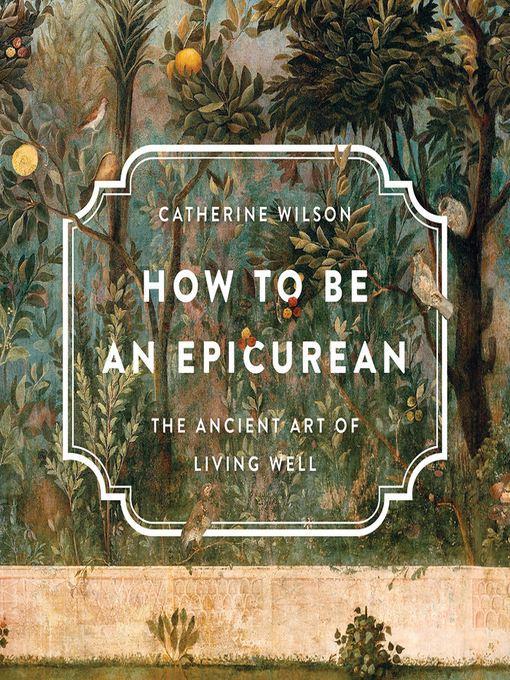
How to Be an Epicurean
The Ancient Art of Living Well
کتاب های مرتبط
- اطلاعات
- نقد و بررسی
- دیدگاه کاربران
نقد و بررسی

July 8, 2019
In this excellent debut, Wilson, a philosopher and visiting professor at CUNY Graduate Center, debunks claims about Epicureanism’s hedonistic nature, arguing instead that the ancient Greek philosophy offers an effective structure for living a fulfilled life. Mining the few remaining writings of Epicurus from the third century BCE, as well as the work of his first-century BCE follower Lucretius, Wilson explains how Epicureanism is an inherently optimistic, positive philosophy that encourages adherents to think in terms of living well as an individual and as part of society. Starting from the basics, Wilson describes the Epicurean vision of creation (all things are made up of either “bodies” or “void”), considers the values of pleasure and pain, expounds on the nature of love, and explains why death shouldn’t be feared—at least not by Epicureans. With prudence, reason, and free choice forming the basis of the philosophy, Wilson argues that Epicureanism is, in fact, surprisingly modern. In a final section—titled “Should I Be a Stoic Instead?”—Wilson compares Epicureanism to other early Greek philosophies, differentiating Epicureanism by stressing its basis positivism. General readers interested in how the ancient Greeks viewed the good life will take great pleasure in Wilson’s entertaining guide to Epicureanism for modern times.

July 15, 2019
How an ancient art of living well is no less applicable--and broadly beneficial--today. Wilson (Epicureanism: A Very Short Introduction, 2016, etc.), British-born visiting professor of philosophy at the CUNY Graduate Center, explores the ideas of Greek philosopher Epicurus, whose writings have come to us largely through the verse of his Roman follower Lucretius. A fundamentally optimistic philosophy, one of the five major schools of thought of the ancient Greek and Roman world, Epicureanism concerns living well and justly, and it was unique for the time in opening its doors to women. But as Wilson shows, the emphasis on pleasure is largely misunderstood. Far from the hedonism with which Epicurus' philosophy is mistakenly associated, and which diminishes a far more comprehensive body of thought, it is his concept of a life of virtue and inquiry that serves as a foundation. After explaining how Epicurus viewed the world, the author applies her concept of the modern Epicurean philosopher to suggest the most constructive approaches to bring to complex sociopolitical problems of our day. Both her assessments of the issues and arguments against contemporary foolhardiness are, in the main, unassailable. However, there is also a large helping of wishful thinking concerning remedies and a decidedly left-leaning scaffolding. Such analyses harbor both strengths and weaknesses. Some statements are much too sweeping, and some assertions are surprisingly oversimplified. Wilson contrasts Epicurean philosophy with its traditional rival, Stoicism, and finds areas of accord as well as divergence. But she contends that ethical and political values are grounded in particular ways of seeing the world, and Epicureanism seems at once to be the most appealing and (ultimately) responsible of precepts. She is a proponent of Epicureanism but not to the extent of ignoring its shortcomings and seeming contradictions. Wilson's writing style varies from lively and lucid to pedestrian, but her intelligence and command of her subject are compelling.
COPYRIGHT(2019) Kirkus Reviews, ALL RIGHTS RESERVED.

Narrator Ana Clements lends a straightforward tone to this discussion of Epicureanism and how it can improve our lives. Author Catherine Wilson provides a detailed examination of this philosophy, developed by Epicurus, a Greek from the third century BCE. Clements's narration illuminates Wilson's explanation of how Epicureanism encourages living a meaningful life that is respectful of ourselves and our community. She also examines how the philosophy can provide strategies to tackle contemporary problems such as wide economic disparity, anxiety and sociopolitical strife. Although the clarity of Clements's delivery is excellent, her tone can come across as severe, especially during in-depth discussion. Overall, this is a sometimes-dry delivery of practical and philosophical ideas. M.F. � AudioFile 2019, Portland, Maine

























دیدگاه کاربران